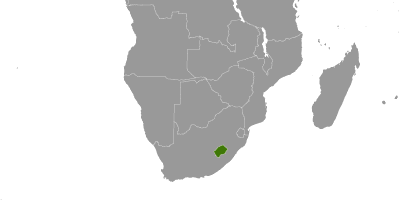On August 5th, 2014, John Crawford III was shot dead by police from behind and without warning in a Wal-Mart in Beavercreek, Ohio. He was just 22 years old and was a father to two young sons. Police believed, based on a 911 call, that he was preparing to open fire in a mass shooting.
In fact, he was holding a toy gun he was about to buy and was chatting amiably to his girlfriend on the phone at the time he was killed, while they both shopped in different parts of the store. Crawford was not violating any laws at the time — even if the gun had been a serious firearm licensed to him and carried openly, he would have been in the clear under local laws and store rules — and there is no evidence to suggest he was about to break any laws. No one passing him in the store, as seen on surveillance footage, appears concerned or frightened by the toy gun.
Although many things quickly began to not add up about the official version of events that led to his death, much of the justification hinged upon that 911 call. As further details have emerged from the incident (such as video footage and audio of the 911 call, plus reports from his girlfriend who heard the shooting over the phone as it happened) and as journalistic investigations have been conducted into the circumstances surrounding it and the people involved, we have learned that there was very little reason to believe Crawford was an imminent threat to anyone.
In particular, the credibility of the primary witness, who called in the purported threat to 911, has been falling apart extremely rapidly. Not only did his 911 call claims not match reality seen on store camera footage — a BB gun became an AR-15 assault rifle, holding became waving/loading/pointing — but he also immediately lied to reporters in public statements right after the shooting. To bolster his allegedly ability to assess the level of danger accurately, he claimed to be an “ex-marine.” In fact, we now know he was kicked out of training less than two months in the U.S. Marines for “fraudulent enlistment” and a heart condition.
A man with a history of lying made a false report to police (and subsequently reporters) because a Black man living his life, simply existing, and obeying all relevant laws was a clear and present danger in his eyes. Such a a belief stems, inevitably, either from personal racial animosity or institutionalized suspicion and fear of Black men in America that makes unconscious racists out of many others who claim not to be. The latter category, acting out their denied prejudices in mistaken police reports and 911 calls, get a lot of people killed.
One might be tempted to shift all blame onto him and away from police, who were arguably just reacting to the information given to them. But the police officers who responded did so with the most extreme response two uniformed officers can make, and they did not provide warnings before firing, nor did they assess the situation to ensure they were not making a mistake. As they reached the scene, acting on the word of one person, they could not possibly imagine that he was anything but a violent and dangerous man who needed to be put down without any attempt to halt him, negotiate with him, or provide him with due process. They shot him fatally (he died of his injuries at the hospital) and the ensuing panic resulted in the death of another woman in the store.
Meanwhile, dozens of White “open-carry” activists have marched through big box stores across the country with actual AR-15s, to the fright of many customers, to demonstrate their “2nd Amendment rights.” No such “right” or benefit of the doubt was afforded to Mr. Crawford. Meanwhile, the White mass shooters in Tucson in January 2012 and in Aurora in July 2012, ages 22 and 24 respectively, were both arrested alive, having actually killed and wounded dozens of people. No such treatment was afforded to Mr. Crawford.
I want to re-state all of the facts of this situation as comprehensively as possible in one sentence: Police, approaching from behind, shot dead a young Black man in an “open-carry” state, without warning, while he was holding a BB air rifle he intended to purchase, simply because a customer with a record of false statements, who had washed out of the Marines in less than two months after fraudulent enlistment, called 911 with a fear of Black men and falsely claimed the victim was loading and pointing an AR-15 at children in the store.
John Crawford III — and so many like him — deserved so much better.







 A new Al Jazeera
A new Al Jazeera  Ah, Bob McDonnell, the once and former future Vice President of These United States. Now a retired Governor of Virginia and (as of today) 11-times-over Federal convict. His wife was also convicted soundly on similar charges.
Ah, Bob McDonnell, the once and former future Vice President of These United States. Now a retired Governor of Virginia and (as of today) 11-times-over Federal convict. His wife was also convicted soundly on similar charges.